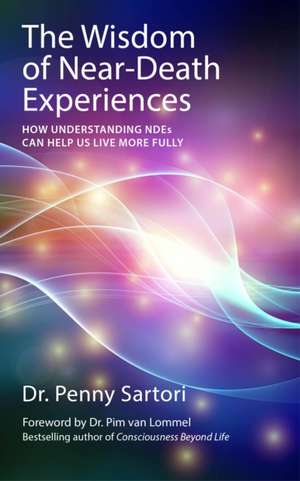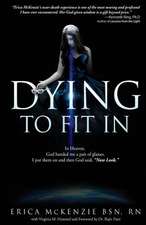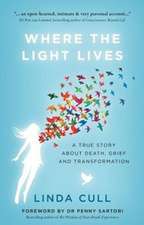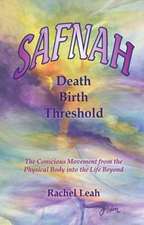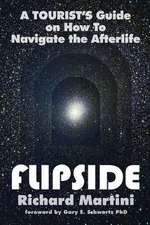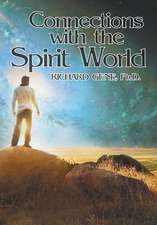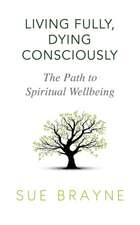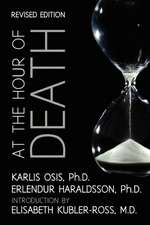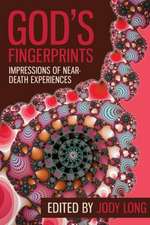The Wisdom of Near-Death Experiences: How Understanding NDEs Can Help Us Live More Fully
Autor Dr. Penny Sartorien Limba Engleză Paperback – 5 feb 2014
The results of her hospital research and that of others could not find a physiological or psychological explanation for these experiences and they can no longer be ignored or explained away. The crucial point of this book is that NDEs undoubtedly occur and have very real, often dramatic, life changing after effects. Further to that, the wisdom gained during the NDE can be life enhancing and have hugely positive effects on those who don't have a NDE - all we have to do is take notice and hear what these people have to say.
A greater understanding of NDEs can not only enhance the way in which we care for dying patients but also revolutionize our current world view. This book encourages readers to take notice of and incorporate the wisdom and powerful message of NDEs into their own lives.
Preț: 82.93 lei
Nou
Puncte Express: 124
Preț estimativ în valută:
15.88€ • 16.57$ • 13.31£
15.88€ • 16.57$ • 13.31£
Carte disponibilă
Livrare economică 20 februarie-06 martie
Livrare express 05-11 februarie pentru 23.09 lei
Preluare comenzi: 021 569.72.76
Specificații
ISBN-13: 9781780285658
ISBN-10: 1780285655
Pagini: 236
Dimensiuni: 136 x 218 x 20 mm
Greutate: 0.32 kg
Editura: Watkins Publishing
ISBN-10: 1780285655
Pagini: 236
Dimensiuni: 136 x 218 x 20 mm
Greutate: 0.32 kg
Editura: Watkins Publishing
Notă biografică
Penny Sartori PhD, RGN is an expert in NDEs and undertook the UK's first long-term prospective study. She is the author of The Near-Death Experiences of Hospitalized Intensive Care Patients: A Five Year Clinical Study and lectures both nationally and internationally. She currently teaches two courses she has written entitled Death and Dying as Spiritual Transformation and Science, Spirituality and Health at Swansea University. The author lives in UK.
Recenzii
“Nurse Penny Sartori was driven by an experience with a traumatized dying patient to study near-death experiences, not to pursue what might happen in an afterlife but rather to improve what happens in this life. Her goal was to learn all she could about the dying process in order to help her patients find meaning in their illness and restore a sense of well-being in their lives. The Wisdom of Near-Death Experiences, the fruit of her labors, is an invaluable resource for health care workers, for dying patients and their families, and for all of us who will face death eventually.”
- Bruce Greyson, M.D., Carlson Professor of Psychiatry & Neurobehavioral Sciences University of Virginia Health System, Charlottesville, VA
"With more than twenty years experience of nursing dying people in an intensive therapy unit , plus a Ph.D. in Near-death Experiences, Dr. Sartori is very well qualified to discuss issues of death and dying. She believes that NDEs provide us with a greater understanding of the dying process and that care of terminally ill patients could be enhanced if NDEs would more widely studied. A greater acceptance of the inevitability of death would help the situation of terminally ill people. At present they are increasingly exposed to invasive and burdensome treatments even when prospects for recovery are recognised as minimal. This is an immensely valuable contribution to current debates about patient care."
- Paul Badham PhD., Professor Emeritus of Theology and Religious Studies, University of Wales, Trinity, St. David
- Bruce Greyson, M.D., Carlson Professor of Psychiatry & Neurobehavioral Sciences University of Virginia Health System, Charlottesville, VA
"With more than twenty years experience of nursing dying people in an intensive therapy unit , plus a Ph.D. in Near-death Experiences, Dr. Sartori is very well qualified to discuss issues of death and dying. She believes that NDEs provide us with a greater understanding of the dying process and that care of terminally ill patients could be enhanced if NDEs would more widely studied. A greater acceptance of the inevitability of death would help the situation of terminally ill people. At present they are increasingly exposed to invasive and burdensome treatments even when prospects for recovery are recognised as minimal. This is an immensely valuable contribution to current debates about patient care."
- Paul Badham PhD., Professor Emeritus of Theology and Religious Studies, University of Wales, Trinity, St. David
